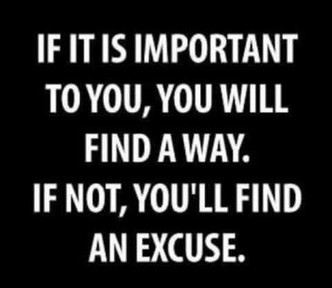
Welcome to Motivational Monday! A safe space to lay it all out on the table- no one is perfect, and every one needs a boost now and again. What time is better than on Monday, that sunny little bright spot of the week? Pull up a chair, keep an open mind, and let’s start this week right!
This week’s theme for Motivational Monday is willpower. With Christmas coming up fast and with it parties and lots of sugary and fatty foods, willpower is important to be sure to not over indulge. Recently I read about willpower in my book ‘The Power of Habit: Why we do what we do in life and business’ by Charles Duhigg and I would like to share a few points.
Duhigg writes of an experiment that Mark Muraven conducted as a psychology PhD candidate at Case Western. The premise of the experiment was to test taste perceptions, but in reality it was to force students- but only some students- to exert willpower. Each person was presented with a plate of cookies and a plate of radishes on a table. Half was instructed to eat the cookies and not the radishes, the other half was to eat radishes and not the cookies. Muraven’s theory was that ignoring the cookies would take willpower and ignoring the radishes would require hardly any effort at all. This went as planned. Then the researcher reentered the room and told the participants that they needed 15 minutes for the sensory memory to fade, and in the meantime they could complete a puzzle while they waited.
This puzzle was actually the the most important part of the experiment. It was impossible to solve, and so the researcher watched to see how long the participants would attempt to work on it. ” The cookie eaters, with their unused reservoirs of self-discipline, started working on the puzzle. In general they looked relaxed. One of them tried a straightforward approach, hit a roadblock, and then started again. And again. And again. Some worked for over half an hour before the researcher told them to stop. On average, the cookie eaters spent almost nineteen minutes apiece trying to solve the puzzle before they rang the bell. The radish eaters, with their depleted willpower, acted completely different. They muttered as they worked. they got frustrated. On average, the radish eaters worked for only about eight minutes, 60 percent less time than the cookie eaters, before quitting.” The point of this is that willpower is like a muscle, like the muscle in your arms or legs, and it gets tired as it works harder, so there’s less power left over for other things.
Duhigg asks how far this analogy extends. Another experiment by two Australian researchers , Megan Oaten and Ken Cheng tried to answer that question by creating a willpower workout. They enrolled people in a physical excercise program that lasted two months. They were put through an increasing amount of weight lifting, resistance training and aerobic routines. After two months they were not only in better physical condition, but were healthier in other parts of their lives as well. Before the experiment most of the subjects were self-professed couch potatoes. However when the test was over they smoked fewer cigarettes, consumed less alcohol, caffeine and junk food. They were spending more hours on homework, fewer on watching TV and were less depressed.
They wondered if exercise just made people happier and less hungry for fast food so they designed another experiment. This time they signed up twenty nine people for a four month money management program. “They set savings goals and asked participants to deny themselves luxuries, such as meals at restaurants or movies. Participants were asked to keep detailed logs of everything they bought, which was annoying at first, but eventually people worked up the self-discipline to jot down every purchase. People’s finances improved as they progressed through the program. More surprising, they also smoked fewer cigarettes and drank less alcohol and caffeine- on average, two fewer cups of coffee, two fewer beers, and, among smokers, fifteen fewer cigarettes each day. They ate less junk food and were more productive at work and school. It was like the exercise study: As people strengthened their willpower muscles in one part of their lives- in the gym, or a money management program- that strength spilled over into what they ate or how hard they worked. Once willpower became stronger, it touched everything.”
Todd Heatherton, a researcher at Dartmouth who has worked on willpower studies said that this is why signing kids up for piano lessons or sports is so important. It has nothing to do with creating a good musician or a five-year-old soccer star. “When you learn to force yourself to practice for an hour or run fifteen laps, you start building self-regulatory strength. A five-year-old who can follow the ball for ten minutes becomes a sixth grader who can start his homework on time.” Also, “When you learn to force yourself to go to the gym or start your homework or eat a salad instead of a hamburger, part of what’s happening is that you’re changing how you think. People get better at regulating their impulses. They learn how to distract themselves from temptations. And once you’ve gotten into that willpower grove, your brain is practiced at helping you focus on a goal.”
So this season make healthy productive choices and see the results reverberate into other areas of your life!
